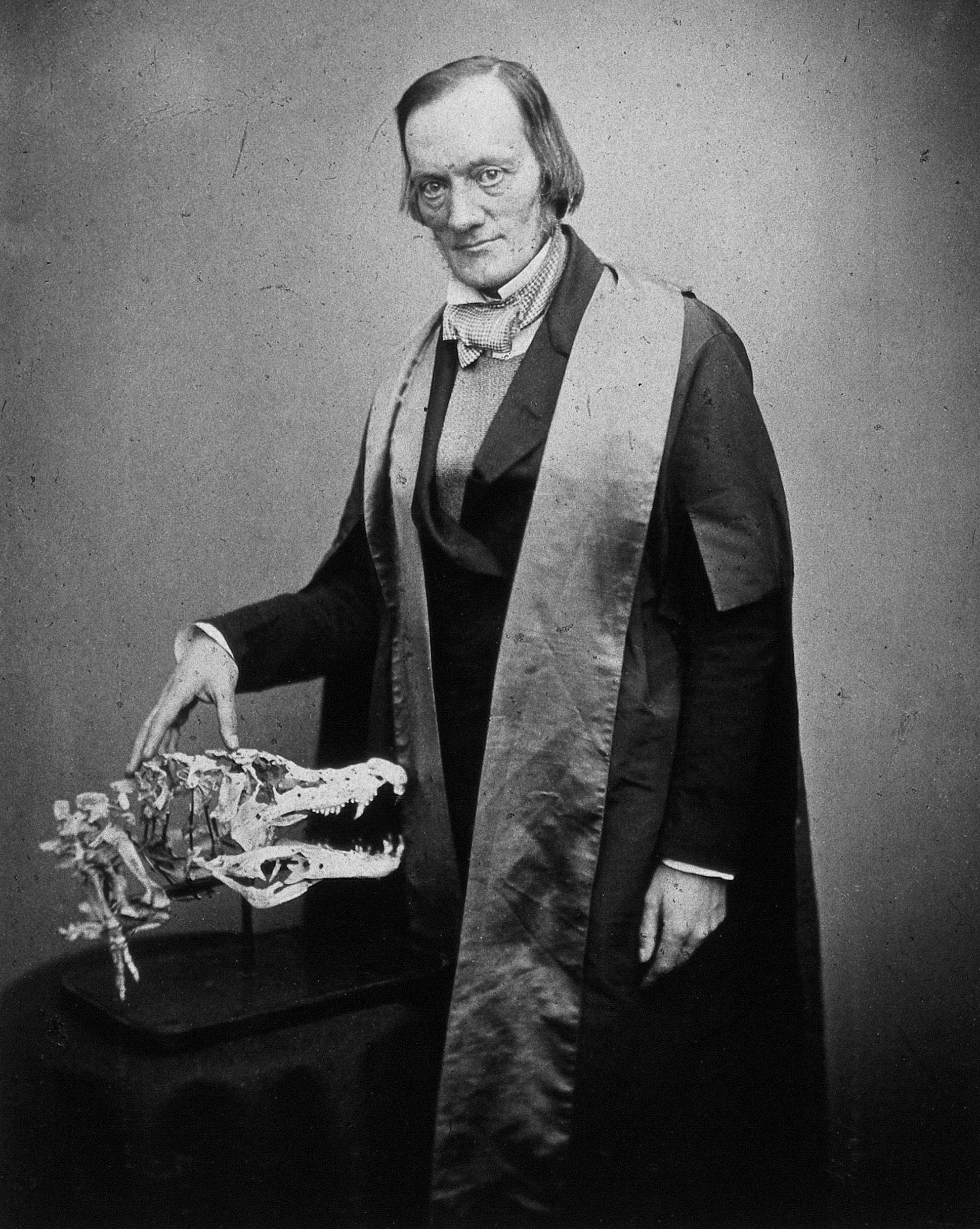Owen, Sir Richard (1804-1892), was an English anatomist and paleontologist. Anatomists study the structure of living things. Paleontologists are experts on prehistoric life. Many scholars consider Owen one of the greatest English natural historians of the 1800’s. Owen suggested that a group of peculiar fossils found in England belonged to a group of prehistoric reptiles unlike any living animals. In 1842, he proposed the term Dinosauria (terribly great lizards) for this group. Its members are today known as dinosaurs.

Owen was born in Lancaster, England, on July 20, 1804. He studied medicine at the University of Edinburgh but did not receive a degree. He studied anatomy at a private school, and he was granted entry into the Royal College of Surgeons in 1826. His interests changed to comparative anatomy, a branch of zoology that compares the body structure of various animals, after he began a position cataloging the Hunterian Collection in London. This collection consisted of thousands of human and animal specimens donated to science by the British surgeon John Hunter. Owen also met with Baron Cuvier, the most famous naturalist of the time, in London and Paris in 1830.
Over his long career, Owen published dozens of scientific papers and gave scientific names to many organisms. In 1837, he began a series of popular public lectures on anatomy and natural history. On one occasion, Owen famously identified a single fossil bone fragment collected in New Zealand as belonging to a giant prehistoric bird, today called a moa. Owen was knighted in 1844. In 1856, he was appointed superintendent of the natural history collections at the British Museum. In this position, Owen oversaw the establishment of the new Natural History Museum in London, which opened in 1881.
Owen was a mentor to many scientists of his day. He published many scientific descriptions of specimens that the naturalist Charles Darwin had collected. Owen generally accepted the idea that organisms evolve (change through time). However, he was an outspoken critic of several elements of the theory of evolution by natural selection, which Darwin had set forth in The Origin of Species (1859). Owen engaged in a series of heated public debates with Thomas Huxley, Darwin’s most vigorous defender. Huxley frequently ridiculed Owen for errors Owen made in scientific papers. Owen was also known to publish anonymous articles criticizing Darwin’s theory, which damaged his own reputation. Owen retired in 1884 but remained active in scientific circles. He died on Dec. 18, 1892.
